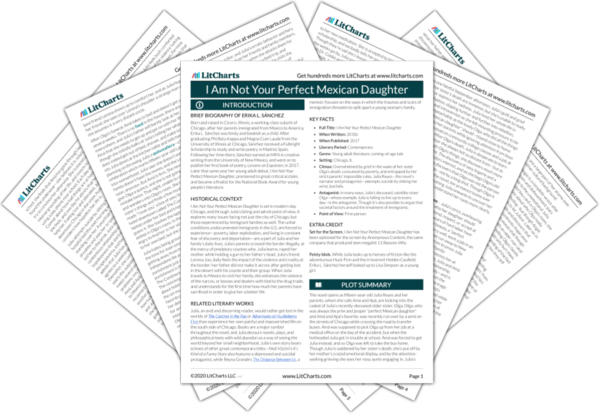Julia’s parents are strict, demanding, and overprotective. In all her constant battles with Amá and haunting silences with Apá, Julia has only ever focused on how their actions affect her. She’s never stopped to think about the
reasons why they are the way they are, or why they treat her the way they do. Julia knows that her parents have hard lives—and in this moment, breaks down emotionally as she feels a rush of empathy for them, and shame at how her actions have hurt them. Meanwhile, though, Dr. Cooke engages with Julia in a different way than anyone else does: she listens, she does not want or need anything from Julia, and she affirms Julia’s right to want the things she wants without shame.
